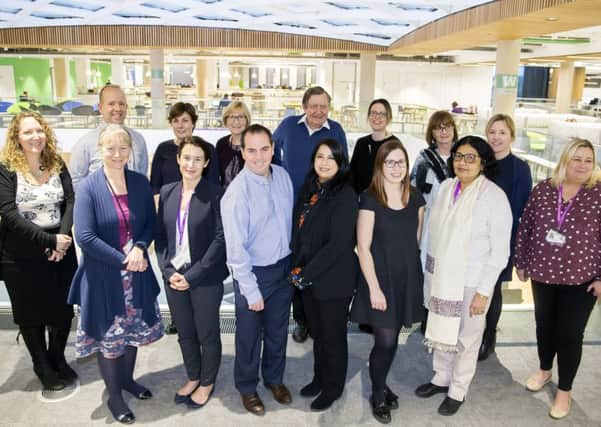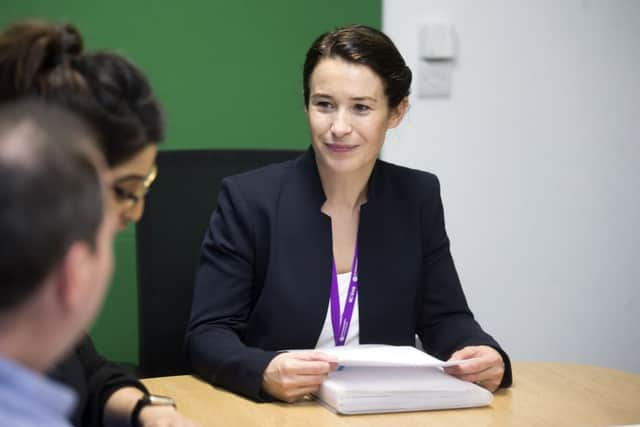‘We want people to live well, not just live longer’: Northamptonshire director of public health’s mission


“There are lots of areas where we perform significantly worse than the England average.
“We have road safety issues; we have got above average self harm hospital admissions; alcohol related hospital admissions; excess weight in adults and children can be a challenge, smoking status at the time of delivery, GCSE attainment and violent crime at county level are all a challenge. Those are areas where we are trying to prioritise our spend going forward.”
Advertisement
Hide AdAdvertisement
Hide AdThere is an annual budget of £35m (in the form of the public health grant) that Mrs Wightman has control of to try to tackle the problems. She says this is a drop in the ocean compared to what is spent across the health sector but will use this to commission new services that address local needs.


Working from the county council headquarters at One Angel Square, with her team of 30, who range from specialist health consultants to data analysts, she is leading a way forward that will provide a tailored rather than one size fits all approach.
She said: “We are now looking at all of the public health spend and making sure that the current expenditure is aligned with priority areas.”
One area where more cash will be spent is on weight management programmes.
Advertisement
Hide AdAdvertisement
Hide Ad“We are looking to enhance our budget for weight management because I don’t think it proportionate to the disease burden currently,” she says.
“We only have a couple of services available for weight management so we need to invest more money into that to address it.”
This will involve co-designing schemes with specialists and asking people what they want, rather than running programmes and workshops that nobody attends.
And new services will be tailored to each geographical area as health problems vary widely across the county according to the level of affluence.
Advertisement
Hide AdAdvertisement
Hide AdThe director of health says: “For example, in Northampton hospital stays for self harm is an area where they underperform. That is not the same for South Northamptonshire which has more diabetes or dementia diagnoses. We have to be careful when we look at Northamptonshire as a whole, which is why we are trying to make sure the offer is tailored to borough and district level.”
As well as commissioning services a large part of the director of public health role is advocacy. Her team works alongside partners such as the police and social services to try to influence where they spend their budget in a way that will provide the best health outcomes.
And the role of public health has changed in recent years. Mrs Wightman says there is more emphasis on how well people are living rather than how long they live.
She said: “Life expectancy has flatlined. In Northamptonshire it is stable, not increasing, whereas nationally there has been a decline in a number of areas.
Advertisement
Hide AdAdvertisement
Hide Ad“The emphasis has moved from making people live longer to helping people live better. What became apparent was there a number of people who were living into their 90s but from the age of 70 they were experiencing significant disease and disability, making the last 20 years of their life not enjoyable. So the shift of focus of both the NHS and public health has very much been about the quality of life. So life lived in health as opposed to life expectancy overall.”
As a former district nurse she knows well what ill health in later years looks like.
She says: “I spent years looking after people who were either immobile and homebound or they were dying and most of those people did not realise that a lot of things that they did when they were younger caused their condition. They would have had control over it at some point. It made me think I need to work upstream rather than look after people when they are really very unwell.”
Her recently-launched A Change Could Do You Good campaign hopes to get people thinking about how they can improve their own health.
Advertisement
Hide AdAdvertisement
Hide Ad“In an ideal world everybody would be eating at least five fruit and vegetables a day, taking at least 30 minutes of vigorous activity at least three times a week, not smoking, drinking in moderation, if at all, and having protected sex. But people do not live like that. In the most part because there is not a return on that investment immediately. People don’t do all of those things when they are younger and they don’t feel the impact of it at that time. They feel the impact of it later.
“Our campaign says there are little things you can do to make a difference. We recognise that not everybody is going to start running 5k three times a week but if you start using the stairs instead of the lift, if you made sure you get up in lunch hour and spend 20 minutes walking around the block, spend less time on your tablet and talked to people, that will make a difference.
“It is unrealistic to ask people to stop all of those things they enjoy. It is about making healthier choices, easier choices.”
Areas where the county is doing better than the national average
72% of mothers start breastfeeding at birth
79% of people are employed
95% of babies are vaccinated at birth
14% of children live in low income families
Advertisement
Hide AdAdvertisement
Hide AdAreas where the county is doing worse than the national average
14 % of mothers are smoking at birth.
485 hospital admissions of 15-19 year olds for self harming
54 % of people eat five portions of fruit and vegetables a day
66% of adults are overweight